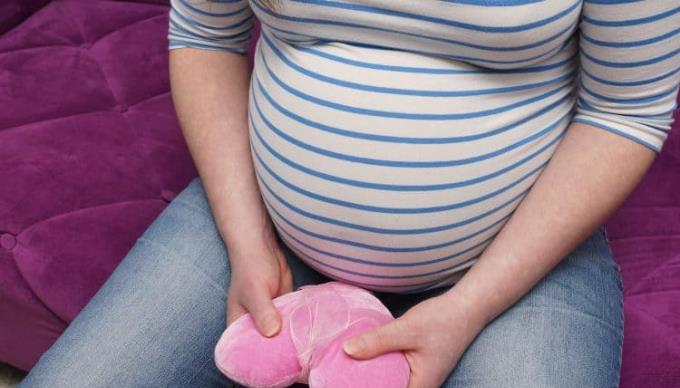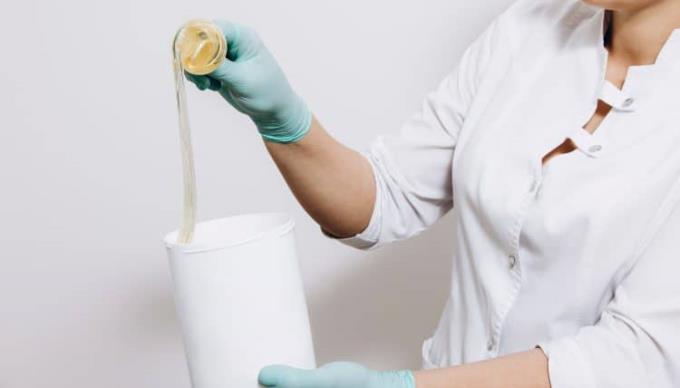Should pregnant women shave their genitals before giving birth is a question of many women, but they are afraid to share. The following reasons will help you realize if you should wax your genitals before giving birth. Let aFamilyToday Health learn about this issue.
If you are pregnant for the first time and are close to giving birth, ask yourself, "Should I shave my genitals before giving birth?". In fact, some hospitals require you to "clear" the hairs of this area before you go on the delivery table. This is essential to prevent the risk of postpartum infection.
Why need to shave the genital area before giving birth?

In some foreign hospitals, it is normal and obvious to clean the genital area before giving birth. Here are the reasons why it is necessary to do so:
During labor , it's easier for the doctor to see you.
The process of giving birth will be better kept clean
If giving birth normally, cleaning the genital area will be very convenient for cutting, incision, and stitching of the episiotomy.
Eliminate the risk of infection if an episiotomy is required (a cut made with the opening of the vagina to aid difficult delivery or prevent tissue rupture during delivery)
Occasionally, the nurse or nurse will do the task. However, you may feel uncomfortable or embarrassed, you can do it yourself or ask a loved one first.
4 common worries when cleaning vaginal hair
Some people are not confident at the thought of placing a razor on their genitals. However, you can try the following ways to ease your anxiety:
Talk to your obstetrician about whether to wax your genitals for instructions (if needed).
Get information from friends, relatives, people experienced in childbirth.
Join the forums for mother and baby, open a discussion on the matter.
To clean your genitals, you can ask your husband, mother, sisters for help or visit spas that have this service.
The benefits and risks of hair removal during pregnancy

Benefit
Vaginal hairs are ideal for bacterial penetration and growth. This is necessary to keep the sensitive area cleaner to avoid postpartum infection
Prevent infection of your baby. When the bacteria tend to thrive in pubic hair, it can affect the baby causing infection
The clean genital area helps the doctor see more clearly when performing any exam
Trimming or shaving your genitals reduces perspiration and maintains good body hygiene
The blood won't get into the hairs during birth and it can be easier to clean the genital area.
Risk
If hygiene is not maintained while removing the vaginal hair, it can lead to infection. You should use tools that are sterilized or are disposable
Hair regrowth can cause an unpleasant itchy sensation
Failure to handle the hair properly can lead to ingrown hairs causing painful bumps
You should ask a loved one to help you or watch it if you do it yourself because a large pregnant belly can block the mother's vision, causing difficulties or cuts in the genital area.
Steps to waxing the vagina for pregnant mothers
If you can't get help, you can do this in the following ways:
Wet the genital area. Prepare a sanitized razor blade with clean alcohol.
Apply a little hair removal cream to your genitals to protect your skin from scratches.
One hand holds the skin stretch, the other hand uses a razor in the same direction the hair grows.
Rinse your genitals when you're done.
Use a little emollient moisturizer, do not let the cream stick to the vagina as it can cause infection in this area.
Wear breathable underwear like cotton or silk. These fabrics keep the skin from getting irritated.
Advice for pregnant mothers
Here are some tips for you:
You are not ashamed of this. This is their regular job.
Let your health staff know if you are in pain or not to avoid the risk of them scraping your skin. This is important, as small cuts resulting from shaving can cause infection.
Whether a normal delivery or a cesarean delivery, cleaning your genitals is only one small step in the birthing process. You don't need to think and worry about it.
If you don't like or are concerned about doing this, just trim the area to reduce the area of hair, reducing the risk of postpartum infection .
aFamilyToday Health does not offer medical advice, diagnosis or treatment.













